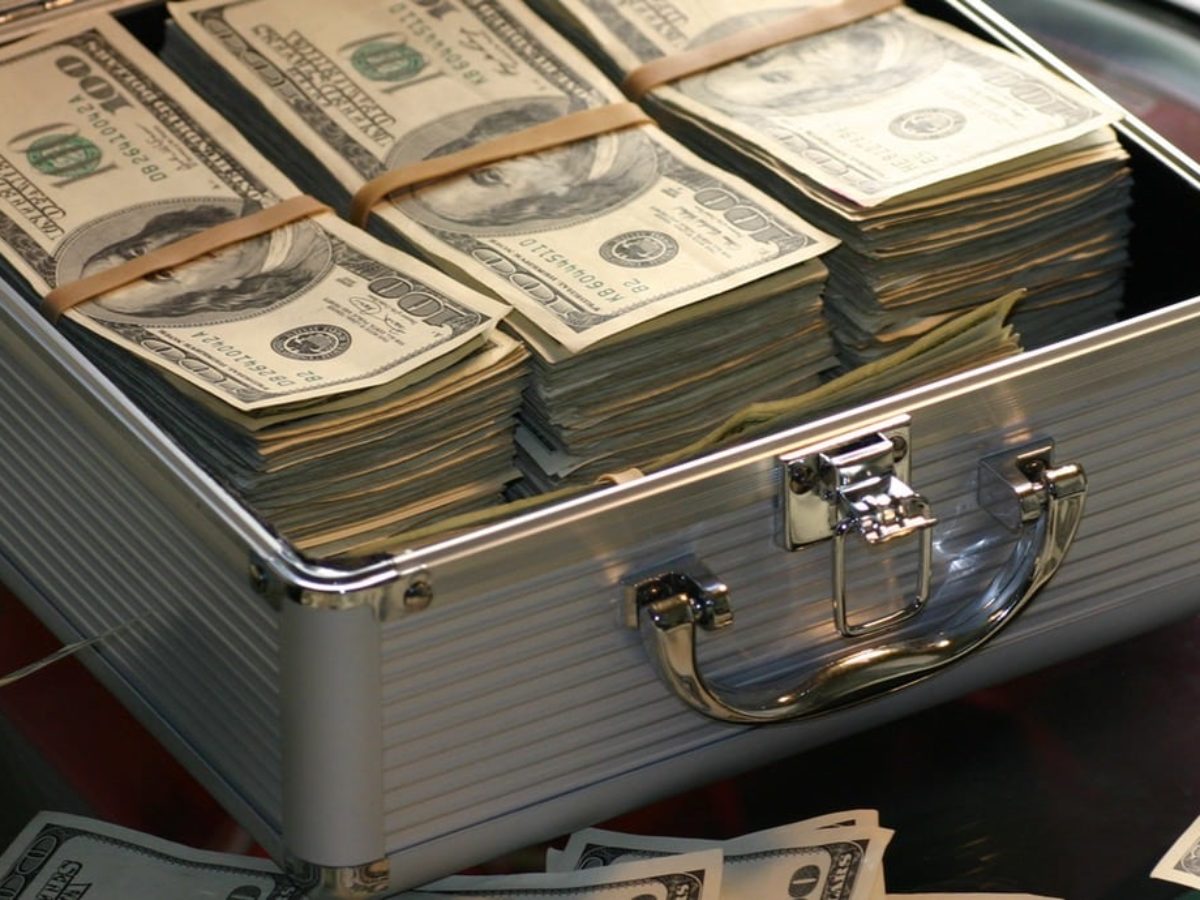Casino Money Laundering Canada
Canada’s federal anti-money laundering agency has notified casinos to be wary of customers paying with bank drafts, highlighting this as a new laundering method. The warnings come after the agency analyzed a number of suspicious casino transactions and found that criminals were increasingly favoring these forms of payments.
Canada's anti-money laundering agency is warning casinos to carefully eye customers who pay for their gaming with bank drafts - the latest method of choice for criminals trying to disguise dirty.
Fintrac, Canada’s anti-money laundering agency, will outline new methods that international criminals are using to launder funds through casinos in a forum hosted in Ottawa (pictured). ©Albert Dezetter/Pixabay
The Financial Transactions and Reports Analysis Centre of Canada, or Fintrac, issued an operational alert outlining how cash has been taken over by bank drafts as the favored method for illicit casino transactions due to heavy media coverage in British Columbia. Criminals are also using low-roller mules as opposed to high-rollers with cash, the organization reports.
Tags: British Columbia, Canada, casino, money laundering The world may never know all the details of one of the most extensive and intricate casino money-laundering networks ever thought to exist. Meanwhile, Great Canadian Gaming is on centre stage at the ongoing Cullen Commission inquiry into money laundering in the Vancouver area. The company owns several gambling sites in B.C. Beeksma, who works as an anti-money laundering specialist with the lottery corporation, said he did not intervene in the suspicious transactions at the direction of managers who ran the casino. Investigators into money laundering in British Columbia said they went looking for a minnow but found a whale—or a whole group of whales, allegedly including casino high rollers. But gaming industry officials say the casinos reported the incidents as required to law enforcement, and cleaned up their house years ago.
A bank draft is a payment method that ensures that funds are guaranteed by a financial institution. Similar to a cheque, it’s difference lies in the fact that the payer is listed as the bank as opposed to the individual supplying the funds.
It’s believed that bank drafts are preferred due to their relative anonymity and liquidity. However, the new method is one of a number of ways that Fintrac has found that criminals are laundering dirty money according to Fintrac director Nada Seeman.
“They will always be looking at different ways to do it, and our job is to be a step ahead of them and figure that out,” she said. “We can’t stop everybody, but we are working extremely hard on this and we are committed to doing more.”
It was also reported that often these laundering players will be accompanied to a casino by someone with a gaming ban. The first kind of mule often listed their occupations as “student” or “unemployed” and may live in areas with currency control restrictions.
Their bank activity was often quite suspicious, with rapid withdrawals of deposited funds and a high volume of deposits from mysterious sources. These withdrawals were then used to purchase bank drafts payable to third parties or casinos.
The second type of money mule reported their occupation as “homemaker.” Their bank accounts also had a lot of deposits from unknown sources, wire transfers from third parties or trading companies. It is believed that in some of the scenarios, the mules may be acting unwittingly to the nature of the crime.

Money Laundering Stages
The Fintrac alert was released as part of Project Athena, a police-led initiative with the aim to disrupt money-laundering activity in Canada. The organization’s main aim is to track cash linked to criminal activity by analyzing hordes of information from various financial institutions or industries with high cash flow, like casinos.

Project Athena is using similar tactics as other anti-criminal efforts such as those used to disrupt the fentanyl epidemic and human trafficking. Last year alone, Fintrac shared over 2,000 intelligence pieces to authorities relating to suspicious financial activity. Of these, 30 were related to Project Athena.
The Investigation
British Columbia launched the investigation into money laundering in May after numerous reports found that the district was being used to launder billions of dollars of criminal funds. The reports found that in addition to casinos, criminals were targeting the real estate market and other sectors.
In fact, according to an independent report commissioned by Attorney General David Eby, by 2016, the province had become a “laundromat for organized crime.” The release of the information was accompanied by leaked casino security camera footage that showed launderers carrying cash into casinos in plastic bags.
The cash was found to be largely sourced from the illegal sale of drugs shipped to Canada from South America and from China’s fentanyl factories. Often, this cash was brought in by Chinese high-rollers. The casinos came under intense scrutiny when it was discovered they consciously overlooked anti-laundering measures like investigating the source of the cash.
The governmental and public outcry from the revelations prompted an inquiry into money laundering in the region and thus Project Athena was created to investigate criminal activities at casinos in the Lower Mainland region. Over the course of six months, the investigation has grown to include the nation and the real estate and luxury items sectors.
“Most British Columbians are concerned about the state of federal law enforcement in our province, as it relates to money laundering and trans-national crime. If they’re not, then they haven’t been hearing the stories about the lack of police officers dedicated to that issue.”– David Eby, Attorney General, British Columbia
Since Fintrac’s findings on the use of bank drafts, some financial institutions and casinos have already added identifying information on the drafts which require patrons to provide a source-of-funds receipt for gaming buy-ins over $10,000.
Fintrac director Nada Semaan will continue to outline further tactics in an upcoming Fintrac forum in Ottawa, which is intended to boost ties between the gaming sector and anti-money laundering authorities.
Paul King Jin’s name has once again resurfaced in British Columbia and it is related to money laundering allegations. A CA$25,000 bank draft located in his personal car was linked to Great Canadian Casinos. The British Columbia government filed a lawsuit against him, claiming that the said amount of Canadian dollars should be seized, as it might be crime proceed.
British Columbia has been linked to money laundering in the past, especially when it comes to the local gambling scene and the opportunities for dirty cash laundering it provides. The lax regulations existent in the past have allowed this practice to go on for years without interruption, as several reports have revealed. Paul King Jin’s name has been mentioned in the past in relation to money laundering allegations.
Casino Money Laundering Proceeds

One of the latest lawsuits against the individual points towards a bank draft reaching CA$25,000. The draft has been previously located in a Mercedes vehicle associated with Mr. Jin. The amount in question was made out to Great Canadian Casinos back in the spring of 2017. The new lawsuit claims that the CA$25,000 might be linked to money laundering activities taking place facilitated by gambling operation.
The provincial government wants to see action on the subject and the forfeiture of the aforementioned bank draft. It could be recalled that back in May 2017, the Combined Forces Special Enforcement Unit captured the Mercedes and following the obtainment of a search warrant, it located the bank draft inside of the vehicle. Mr. Jin is known for operating as a loan shark across the Lower Mainland.
Casino locations such as River Rock Casino in Richmond, overseen by Great Canadian Gaming have been a regular location for him. His activities included cash delivery for high rollers willing to pay more once they have spent their initial stack of cash. Reports have shown that he has been most active over the span of three years between 2012 and 2015.
Lawsuit Filed against Mr. Jin
Over the said period of time, Mr. Jin was able to complete some 140 casino transactions involving substantial amounts of cash. Reports have shown that it reaches CA$23,501,46 but the actual sum might surpass this amount. In relation to these transactions, he was mentioned several times in the notorious E-Pirate probe that came to a halt towards the end of 2018. It should be taken into account that his operation have reportedly continued regardless of the regulations.
He was banned from casino venues still had the chance to supposedly wash some CA$4.2 million at River Rock Casino in Richmond over 2014 and 2015. As it was alleged by documents that surfaced about a year ago, Mr. Jin was allowed to pour in the millions of Canadian dollars in cash at the casino venue despite the fact that he was prohibited from entering the casino venues and conducting his business.
British Columbia Lottery Corporation considered him an extreme risk type of individual, which had prompted his ban in 2012. The most recent lawsuit alleges that crime proceeds are what aided Mr. Jin to purchase the bank draft, therefore mandating its seizure. In the past, his name has been linked to the management of illegal gambling dens, money laundering, extortion, as well as not reporting taxable income.